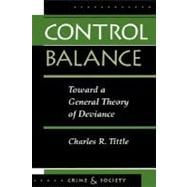
Note: Supplemental materials are not guaranteed with Rental or Used book purchases.
Purchase Benefits
What is included with this book?
| Acknowledgments | p. xi |
| The Problem with Simple Theories | p. 1 |
| Features of Adequate Theory | p. 17 |
| General Conclusion | p. 51 |
| Conventional Methods of Theory Building | p. 54 |
| General Conclusion | p. 87 |
| Theoretical Integration | p. 89 |
| What is to Be Explained | p. 124 |
| General Summary | p. 141 |
| The Concepts of Control Balance Theory | p. 142 |
| General Summary | p. 170 |
| The Causal Process of Control Balance Theory | p. 171 |
| General Summary of the Control Balancing Process | p. 192 |
| General Summary | p. 199 |
| Contingencies for the Central Causal Process | p. 201 |
| General Summary | p. 224 |
| Compatibility of the Theory with Evidence | p. 226 |
| General Conclusion | p. 271 |
| Integration and Critique | p. 272 |
| General Summary and Conclusion | p. 290 |
| References | p. 291 |
| About the Book and Author | p. 307 |
| Index | p. 309 |
| Table of Contents provided by Publisher. All Rights Reserved. |
The New copy of this book will include any supplemental materials advertised. Please check the title of the book to determine if it should include any access cards, study guides, lab manuals, CDs, etc.
The Used, Rental and eBook copies of this book are not guaranteed to include any supplemental materials. Typically, only the book itself is included. This is true even if the title states it includes any access cards, study guides, lab manuals, CDs, etc.